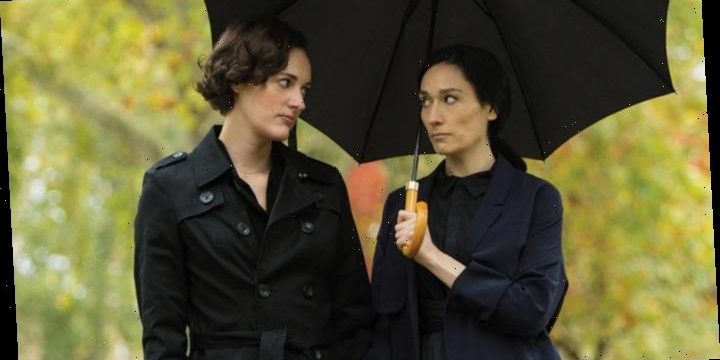With the rise of streamers rapidly changing the television industry, it was inevitable that the biggest TV market would have to address the evolution. A year after exploring the so-called big shift in television, the theme of this year’s Mipcom conference is the Streaming Offensive, with sessions from speakers including Amazon Studios’ head of international originals James Farrell, Tubi CEO and founder Farhad Massoudi and Mipcom’s Personality of the Year, WarnerMedia Ent.’s chairman, Robert Greenblatt, who is preparing to launch HBO Max next spring.
“It was clear that this is the key topic today, and it is very important to look at that through different lenses,” says Laurine Garaude, director of Mipcom organizer Reed Midem’s television division. “Not just from the point of view of streamers, but the reaction and the response from linear channels, and the impact on production, investment and funding.”
The greatest shift that Garaude has observed in recent years is not in the number of territories represented, but how open buyers have become to programming from different cultures.
“Mipcom has always been an international market. We have a hundred countries present, and that’s not new,” she says. “What is new is the way that international content is truly traveling. I do think it’s in part a result of the streamers and the way they have created an appetite for content that comes from around the world.”
This year, 1,800 out of the 4,800 registered buyers are digital, and of those, 450 are streaming platforms. “We also have many regional platforms. That has been a growing number over the last five years,” says Garaude.
Those services need to be populated with content, which presents opportunities for distributors and content providers, particularly smaller ones, attending the market. Youngest Media, a U.K. content studio launched in 2016, whose formats include recent NBC acquisition “Small Fortune,” still finds the market instrumental.
“We find that having all our buyers and clients in the same place at the same time, whether it’s closing a deal, continuing conversations towards production or relationship conversations, is incredibly valuable,” says co-founder David Flynn.
Farrell agrees that Mipcom remains the place to reach critical mass, especially as Amazon hunts for the next wave of projects. “We’re looking for things that are really differentiated in our key countries. There are a lot of great content creators that come to Mipcom, so you want to put the word out for the kind of content we are looking for and find a way to say that to as many people as possible.” Farrell will take the stage with head of European originals Georgia Brown.
As the dynamics of dealmaking start to move away from one annual consolidated event, the object of the market, for some long-time attendees, is starting to evolve.
“A deal will close when that deal needs to close, based on when the product is available,” says Cathy Payne, CEO of Endemol Shine Intl., one of the biggest global distributors. “The reason we go to Mipcom is that it is still the biggest global trade market for television content and a good place to showcase. Often you talk about those shows that may not have been the top choices, a franchise that you think that buyers could consider, that maybe they haven’t.”
As the industry continues to change shape, Mipcom vows to keep its participants informed and engaged.
“I truly think that Mipcom is more important than ever before, because of the complexity and changing players of the market,” says Garaude. “There are no other events that bring the entire world in one place at one time. That is something that is essential today.”
Source: Read Full Article
